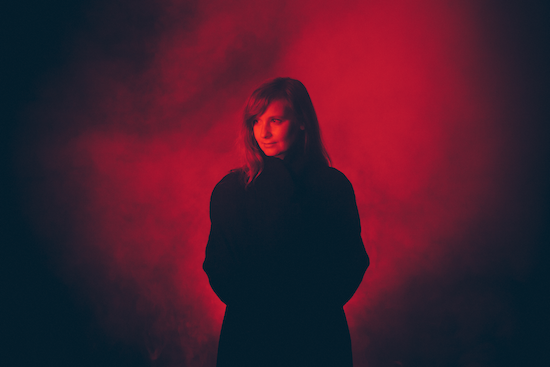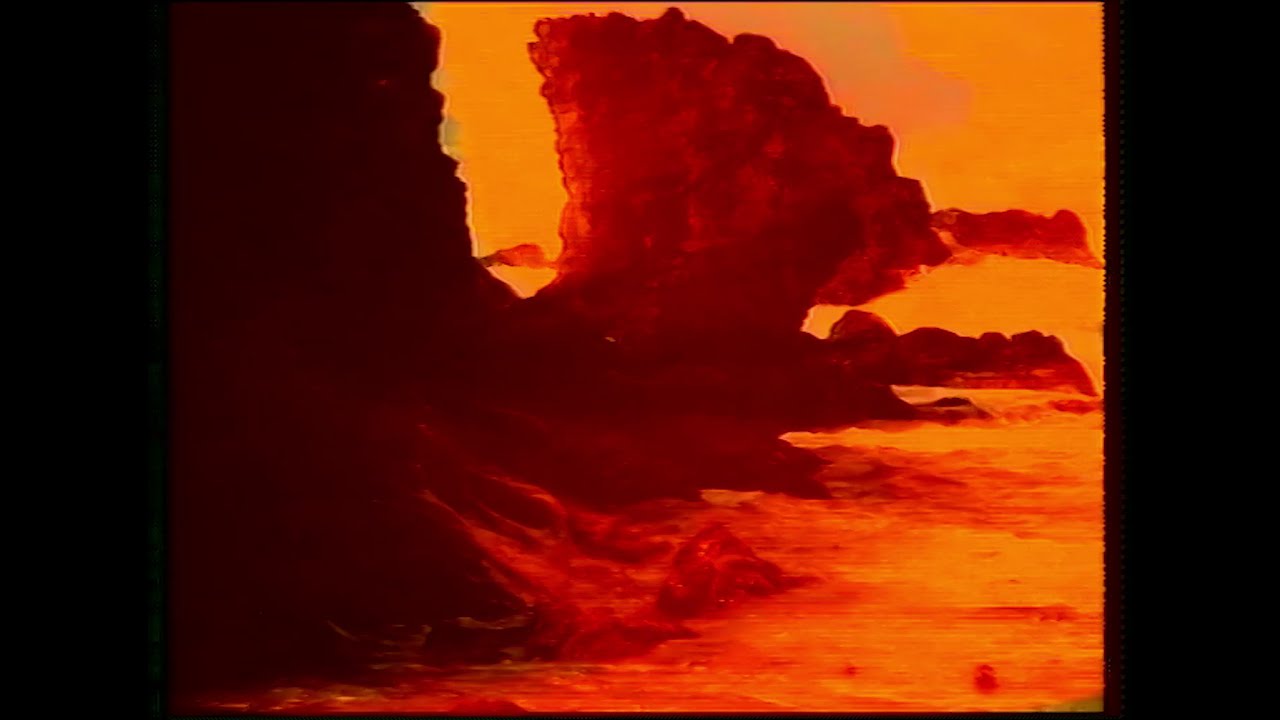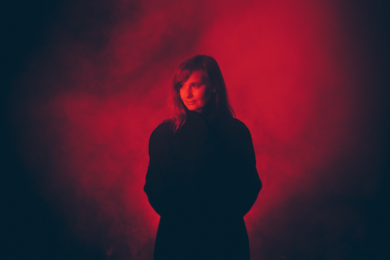Resina by Pawel Zanio
Artists from Central and Eastern Europe enjoy regular coverage on this site but, in recent years, local underground scenes have continued to spawn a huge variety of intriguing artists. The idea for this column is to showcase some of this variety.
It’s not easy to fight your way past the major distribution networks, the voice of the mainstream media and dominant trends they inspire, even if you’re a resident of these countries. But look to rehearsal rooms, home studios, to where dedicated lyricists or skilful instrumentalists can be found in order to discover how colourful the local underground really is. Eblis Alvarez of the Colombian band Meridian Brothers once told me: "Instead of making global things local, [we should] make local things global." Let that be the watchword for this column.
Local scenes are thriving today, so the first episode will be devoted to Poland. It is not easy to profile it and not intended to be comprehensive, but this is a taste of what I find most interesting: those with an original approach to electronic music, unconventional methods of improvisation and creative reinterpretations of the guitar canon. Incidentally – and in line with Alvarez’s catchphrase above – Resina releases albums under FatCat’s 130701 imprint, Piotr Kurek plays concerts in Western Europe more often than in his homeland, and Trupa Trupa’s new album will mainly be promoted by tours in the UK and US.
Future columns will look at other countries in central and eastern Europe.
Wojciech Rusin – Syphon
(AD 93)
Wojciech Rusin is probably better known in the UK than in Poland, having worked, among others, for BBC Four, The National Theatre and The Southbank Centre. He creates 3D printed pipes) and his previous album The Funnel was the result of a project prepared for the Glasgow Radiophrenia festival. Syphon is a follow-up to that release, the second part of a planned trilogy. The starting point is a vision of renaissance music composed in the future. Rusin juxtaposes operatic vocals with electronics created in the Orange Milk aesthetic using hyper pop elements, field recordings and synthesis in the spirit of Sote. He uses self-made 3D instruments which create a multi-layered story – dehumanised electronics meeting sounds of nature and strings. Sometimes he ventures into song-like compositions with Eden Girma, Emma Broughton and interesting chamber music (‘Word into Shapes’), at other times into quasi-folk (‘Destroyer Of World’). The album’s narrative is closer to an audio play, simultaneously engaging and surprising with original ideas.
Resina – Speechless
(130701)
Resina’s third album was created at a time when several hundred thousand people throughout Poland were taking part in the Women’s Strike to protest new anti-abortion laws – and that anger is clearly palpable on the record. The cellist, composer, author of music for films and games previously explored the cello in the spirit of Hildur Guðnadóttir or Jessica Moss, looping the instrument and creating multi-layered pieces. Now she has enhanced it with the sound of percussion and vocal contributions of the 23-piece 441Hz Choir. Speechless showcases Resina’s virtuoso skills and glissandos in the spirit of Reich’s minimalism (‘Horse Tail’), which sometimes lead to dense walls of sound (‘Manic’). When the instrument is as far-removed from its clichéd sound – verging on the trance-like, the rough and the ritual – it attracts me the most.
Piotr Kurek – World Speaks
(Edições CN)
Over the last ten plus years, Piotr Kurek has released music on such labels as Cronica, Hands In Dark Black Sweat Records or Mondoj, creating imaginary variations on Polish folk, electronic passages, but also music for theatre and films. On World Speaks, he cites as inspiration the paintings of Thomas Cole, which for many years served as desktop wallpaper on his laptop. He started with vocals subjected to modulations, which you can hear clearly in the opening ‘Chordists’. Later, in this delicate and intimate story, they enter into a dialogue with reeds and organs, building a mystical and polyphonic fairy tale, played by a quasi-folk, quasi-chamber, imaginary orchestra. Listen to the results in ‘Key And Stop’, which sounds like a minimalist soundtrack to a retro computer game. Kurek combines unusual instrumental sounds with abstract vocals, sometimes layering them in a truly baroque form. This album proves that he is one of the most original musicians on the experimental music scene.
FOQL/Copy Corpo/Astma – Temple of Urania
(Pointless Geometry)
FOQL (Justyna Banaszczyk) has so far focused on rhythmic, rough IDM and industrial breakdowns. The effects of her work could be heard on albums released by the likes of CGI Records, Paralaxe Editions or New York Haunted. This time her electronic, buzzy, half-hour-long suite takes on a long linear form that combines synth passages, field recordings and pulsating electronic elements. Inspired by the lives of the artists Claude Cahun and Marcel Moore, the material is the result of a residency on the Channel Island of Jersey. Temple Of Urania originally functioned as a multi-channel sound installation and was subsequently published on VHS cassette. The music is accompanied by coherent visual material produced by Copy Corpo and Astma, creating an immersive, psychedelic experience, best experienced on a big screen.
Pejzaż – Noce i dnie
(The Very Polish Cut-Outs)
Bartosz Kruczyński who, as Pejzaż (Polish for ‘landscape’), usually samples Polish songs from the 70s and 80s, transplanting them into an ambient and Balearic setting, now refers to the interwar era. On Noce i dnie (‘nights & days’), instead of beats and synthesizers, he draws attention to strings, the crackling of shellac records and distorted instruments. A heavy-sounding double bass, reverberating saxophone and cut-up vocals create a psychedelic and dreamlike soundtrack. The album breathes the spirit of Philip Jeck’s sampling, and also reminds me of the oneiric world made by The Caretaker. There’s an ethnographic element too: even Polish listeners will be surprised by Kruczyński’s rediscovery of the vocalist Regina Kujawa or Warsaw’s Dana Choir, with whom Mieczysław Fogg, a notable Polish singer, performed the Spanish tango.
Martyna Basta – Making Eye Contact With Solitude
(Warm Winters Ltd)
Martyna Basta has been extremely prolific during the pandemic, adding no fewer than five new releases to her Bandcamp page. The latest and most mature one, Making Eye Contact With Solitude, sounds like a study of loneliness, a fascinating picture of pandemic reality. The young artist weaves her compositions from various elements: field recordings, sounds of the violin, zither, and harpsichord, at one point even interwoven with delicate vocals. In the spirit of Claire Rousay or Marta Forsberg, she creates an intimate picture of everyday life, an ambient space based on improvisation and meditation. A very personal and delicate statement.
Kurws – Powięź
(self-released)
The Wroclaw trio has been active for over a decade, starting out from punk, improvisation and no wave, yet more and more openly exploring guitar aesthetics with each subsequent album. Powięź (Polish for ‘fascia’) as usual offers a set of instrumental tracks characterised by a nervous pulsation, raw sound and krautrock motorik. Kurws start with improvisation, while playing with mathematical exactitude, redefining the genre within which they move. There’s guitar precision and percussive breaks rushing in, the musicians juggle ideas, coming at the listener with a cascade of sounds, but at the end we always get a soft landing. And then comes that longest, title track – just listen to how the music accelerates and manoeuvres between the walls of guitars and percussive excursions. There’s trance, there’s tension, and it doesn’t drop even for a moment.
Hubert Zemler – Drut
(Bocian)
Hubert Zemler, one of the most active Polish drummers, can play almost anything. He formed part of symphony orchestras and free jazz bands, contributed to Terry Riley’s folk version of ‘In C’, (played footwork on electronic drums, and even collaborated with Szábolcs Esztényi, John Tilbury and Felix Kubin. Drut gathers all these experiences – it comes out exactly a decade after Zemler’s first solo album Moped, but is more diverse in terms of sound and composition. The musician navigates between drone-like electronics and frenetic drumming supported with electronic distortion, but also creates semi-acoustic glitches and techno structures. He explores resonance, creating percussive afterimages not unlike the Austrian trio Radian. Drut shows a rich palette of sounds, bordering on electroacoustics and electronics. And all this was recorded live, without any post-production, during one of his concerts.
Trupa Trupa – B FLAT A
(Glitterbeat)
Imagine the Beatles and Velvet Underground reading Hannah Arendt while in the studio with film director Michael Haneke. That’s Trupa Trupa in a nutshell, a Gdańsk-based band who spent the last decade perfecting their balancing act between lyrical songs and crushing psychedelia. ‘Moving’ and ‘Twitch’ have an intense and aggressive Fugazi style, ‘Uniforms’ and ‘All In All’ are reminiscent of Beatles melodies and ‘Lines’ is a psychedelic acid trip in the vein of Syd Barrett. It’s worth listening to Grzegorz Kwiatkowski and Wojciech Juchniewicz’s lyrics, in which they confront everyday evils. On B FLAT A they sing repetitive sentences, introverted confessions or loud slogans – sometimes one word can radically distort the original thought. It’s worth being alert: in ‘Uniforms’ we don’t even notice when the line ‘I want to eat all my uniforms’ transforms into ‘I want to be all my uniforms’. It reminds me of the children’s games from Haneke’s The White Ribbon: you can feel the horror if you know history.
VTSS – Projections
(Ninja Tune/Technicolor)
This year marks a decade since Martyna Maja, known as VTSS, attended Krakow’s Unsound festival as a punter, which ultimately inspired her move into music production. After relocating from Berlin to London during the pandemic, a collaboration with LSDXOXO and a Mixmag cover in November, she now makes her Ninja Tune/Technicolor debut. Projections is quieter than her previous recordings – soft breaks and harder basslines juxtaposed with bouncing synths and playful melodies. Maja offers a vision of deconstructed club music that sounds light, quite calm, but clear and specific, sometimes in surprisingly short forms as in ‘Trust me’. She really stands out in the label’s catalogue, between the likes of Black Country, New Road or Bonobo. Above all, though, this EP clearly shows that the artist has no intention of stopping her musical explorations anytime soon.




